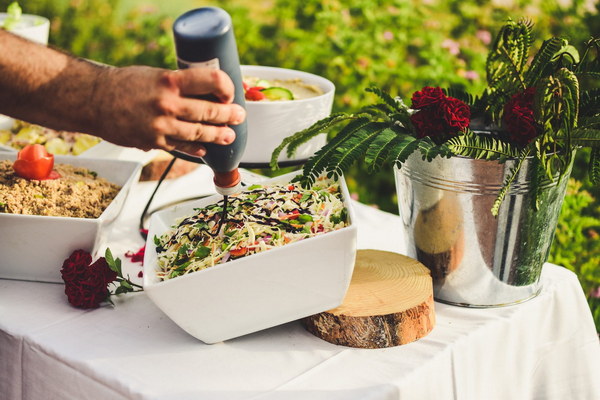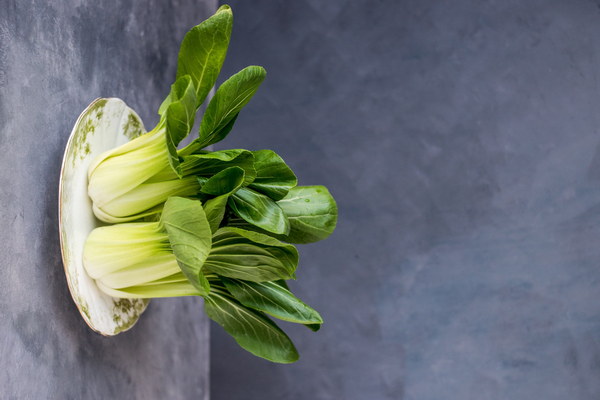Nurturing Your Child's Health A Guide to Moisture-Wicking and Spleen-Strengthening Herbs for Kids
In the fast-paced world we live in, it's no surprise that children are increasingly susceptible to various health issues, including dampness and spleen weakness. These conditions can manifest in a range of symptoms, from poor appetite to frequent colds and flu. To ensure your child leads a healthy and vibrant life, it's essential to focus on moisture-wicking and spleen-strengthening herbs. In this article, we will explore the benefits of these natural remedies and provide practical tips on how to incorporate them into your child's daily routine.

Understanding Dampness and Spleen Weakness in Children
Dampness and spleen weakness are traditional Chinese medicine (TCM) concepts that can be difficult to grasp. However, understanding them is crucial in addressing your child's health concerns.
Dampness refers to an excess of moisture in the body, which can lead to symptoms such as fatigue, bloating, and a lack of energy. Spleen weakness, on the other hand, is related to the body's ability to absorb and transport nutrients, often resulting in poor digestion, weight gain, and a weakened immune system.
Benefits of Moisture-Wicking and Spleen-Strengthening Herbs
Natural herbs have been used for centuries to treat a variety of ailments, and they can be particularly beneficial for children with dampness and spleen weakness. Here are some of the key benefits of these herbs:
1. Improved Digestion: Herbs like Poria (Fu Ling) and Atractylodes (Bai Zhu) help to strengthen the spleen and improve digestion, leading to better nutrient absorption and weight management.
2. Increased Energy Levels: By reducing dampness and strengthening the spleen, these herbs can boost your child's energy levels, making them more active and engaged.
3. Enhanced Immune System: A healthy spleen is crucial for a robust immune system. Herbs like Astragalus (Huang Qi) and Ginseng (Ren Shen) can help protect your child from frequent colds and flu.
4. Improved Sleep: Many children with dampness and spleen weakness experience sleep disturbances. Herbs like Peony (Shao Yu) and Licorice (Gan Cao) can help promote better sleep patterns.
5. Reduced Allergies: Some children may have allergies related to dampness and spleen weakness. Herbs like Elecampane (Bai Zi Ren) and Betony (Pi Li) can help alleviate allergy symptoms.
Incorporating Moisture-Wicking and Spleen-Strengthening Herbs into Your Child's Routine
Now that you understand the benefits of these herbs, let's discuss how to incorporate them into your child's daily routine:
1. Consult a TCM Practitioner: Before starting any herbal regimen, it's crucial to consult a qualified TCM practitioner to determine the best herbs and dosage for your child.
2. Herbal Teas: Brew a soothing herbal tea using herbs like Poria, Atractylodes, and Astragalus. You can sweeten the tea with a small amount of honey to make it more palatable for your child.
3. Herbs in Recipes: Add herbs like Ginseng and Licorice to your child's favorite dishes, or use them as a spice in homemade sauces and marinades.
4. Dietary Changes: Ensure your child's diet is rich in spleen-strengthening foods, such as lean proteins, whole grains, and fresh fruits and vegetables. Avoid overly sweet or greasy foods, as they can exacerbate dampness.
5. Regular Exercise: Encourage your child to engage in regular physical activity, which can help reduce dampness and improve overall health.
Conclusion
By focusing on moisture-wicking and spleen-strengthening herbs, you can help your child lead a healthier, more vibrant life. Always consult a TCM practitioner before starting any herbal regimen, and be patient as your child adjusts to these natural remedies. With the right approach, you can ensure that your little one grows up strong and resilient.









